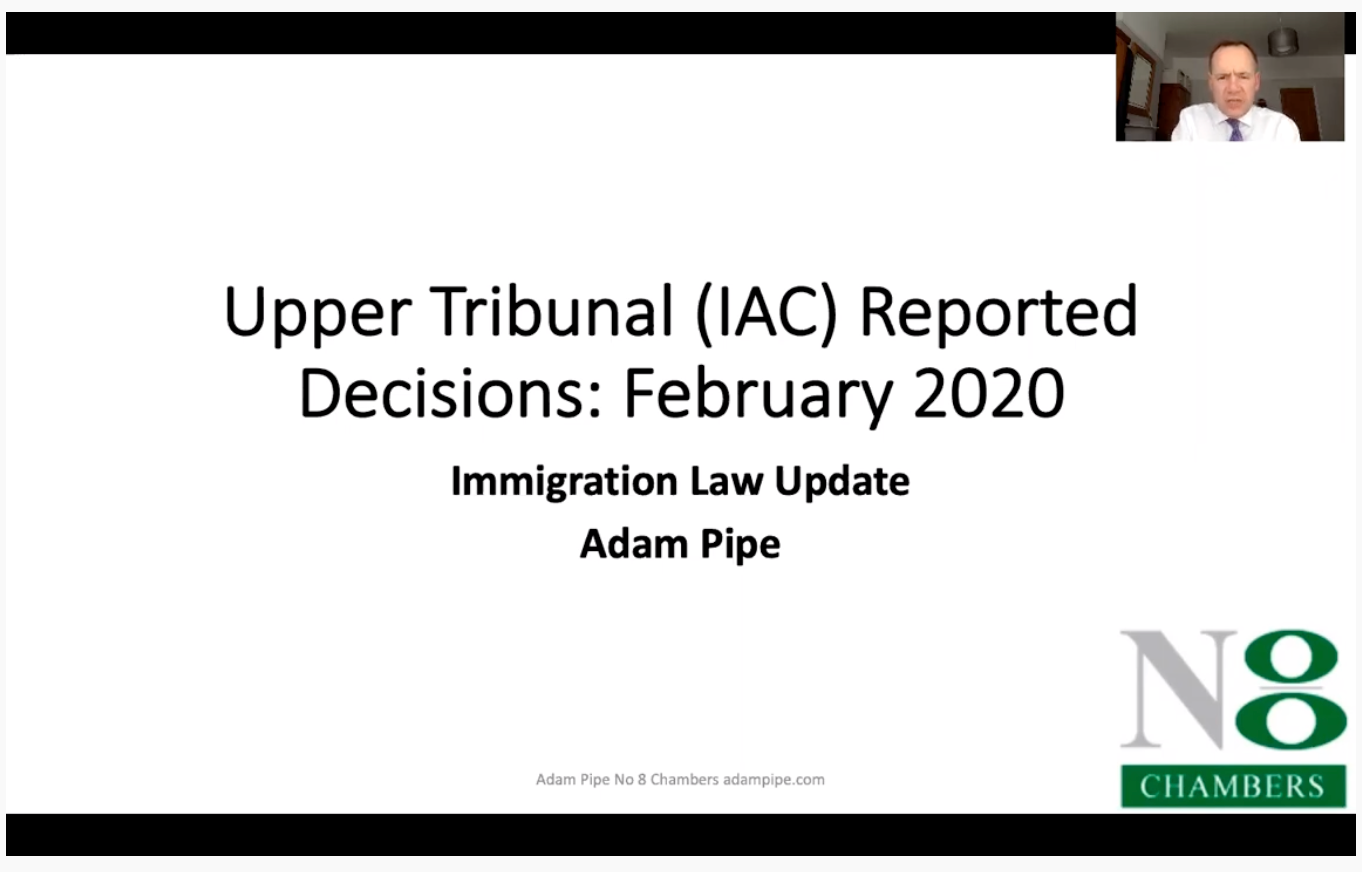New Video - Tax Discrepancy Cases: §322(5), Dishonesty and Accountants’ Evidence

In this immigration law update video Adam Pipe looks at three recent tax discrepancy cases concerning §322(5), dishonesty and evidence from accountants. The citations and links are below:
Abbasi (rule 43; para 322(5): accountants' evidence) Pakistan [2020] UKUT 27 (IAC) (8 January 2020)
Tahir Yaseen v Secretary of State for the Home Department [2020] EWCA Civ 157 (14 February 2020)
Ashfaq (Balajigari: appeals) [2020] UKUT 226 (IAC) (17 June 2020)


